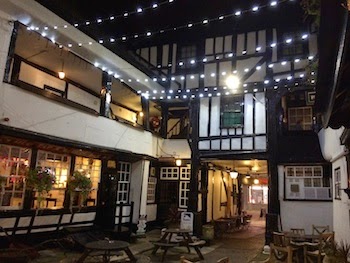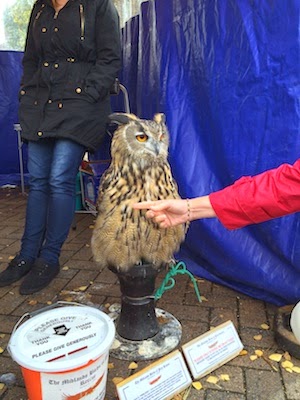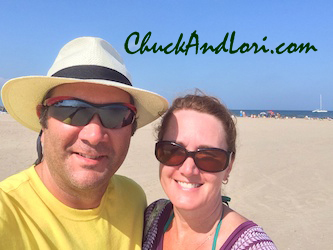 |
From  |
| The House Shakespeare Might Have Been Born In |
Shakespeare wrote in the dozen or so years before 1600 and the dozen or so years after. He was not only prolific (38 plays, 154 sonnets, plus more–some of which he collaborated on and some of which might be incorrectly attributed to him) but also inventive. No other writer contributed more to changes and the evolution of English than Shakespeare; here are just a few of the noteworthy phrases he coined:
- All that glitters is not gold
- Alls well that ends well
- Be-all and end-all
- Brave new world
- Break the ice
- Brevity is the soul of wit (my favorite and one I obviously seem to have trouble with)
- (Refuse to) Budge an inch
- Dead as a doornail
- Dogs will have his day
- Eaten me out of house and home
- Elbow room
- Fancy-free
- Forever and a day
- Foregone conclusion
- Full circle
- Good riddance
- It’s high time
- In a pickle
- In my mind’s eye
- Into thin air
- Killing with kindness
- Laughing stock
- Love is blind
- Naked truth
- Neither rhyme nor reason
- One fell swoop
- Star-crossed lovers
- Pomp and circumstance
- Seen better days
- Send packing
- Short shrift
- Snail-paced
- A sorry sight
- The short and long of it
- The world is my oyster
If that weren’t impressive enough, if a phrase was too unwieldy, he’d just make up a word, like: addiction, advertising, assassination, blanket, bet, champion, compromise, countless, epileptic, eyeball, fashionable, gossip, jaded, lonely, majestic, mimic, mountaineer, negotiate, rant, secure, submerge. Think about that. Before Shakespeare dreamed these words up, more than 1700 in total, they didn’t exist and had never been spoken or written. Click here to learn more about the words Shakespeare invented.
I would be happy to invent just a single word that sticks in the English lexicon, so here you go: “Brainuriance”. It’s a noun that means: the possession of an excess of semi-useful to outright useless knowledge. It would be used this way: “Chuck has considerable brainuriance.” Please use it freely and without royalties to ChuckAndLori.com (unless, of course, you are so moved).
 |
| The Courtyard of our Gloucester Inn: Shakespeare Performed Here Once |
If this stuff on Shakespeare fascinates you in the least, I highly recommend you read Bill Byrson’s “Shakespeare: The World As Stage”. Like all of Bryson’s books, it’s an easy and enjoyable read, and (as a bonus!) not written in the English of Shakespeare’s day. If you like that book, you’ll probably also like Bryson’s “The Mother Tongue: English And How It Got That Way”.
Sidebar: the day we visited the birthplace of the bard, they had a market in the square. One of the booths was a nonprofit birds-of-prey rescue. They had on display four of the most impressive owls we’ve seen up close. They are truly “majestic” birds (you remember the origin of the word “majestic”, don’t you?). We’re hoping to see a falconry display while we’re in England.
 |
| Lori Petting an Owl |






